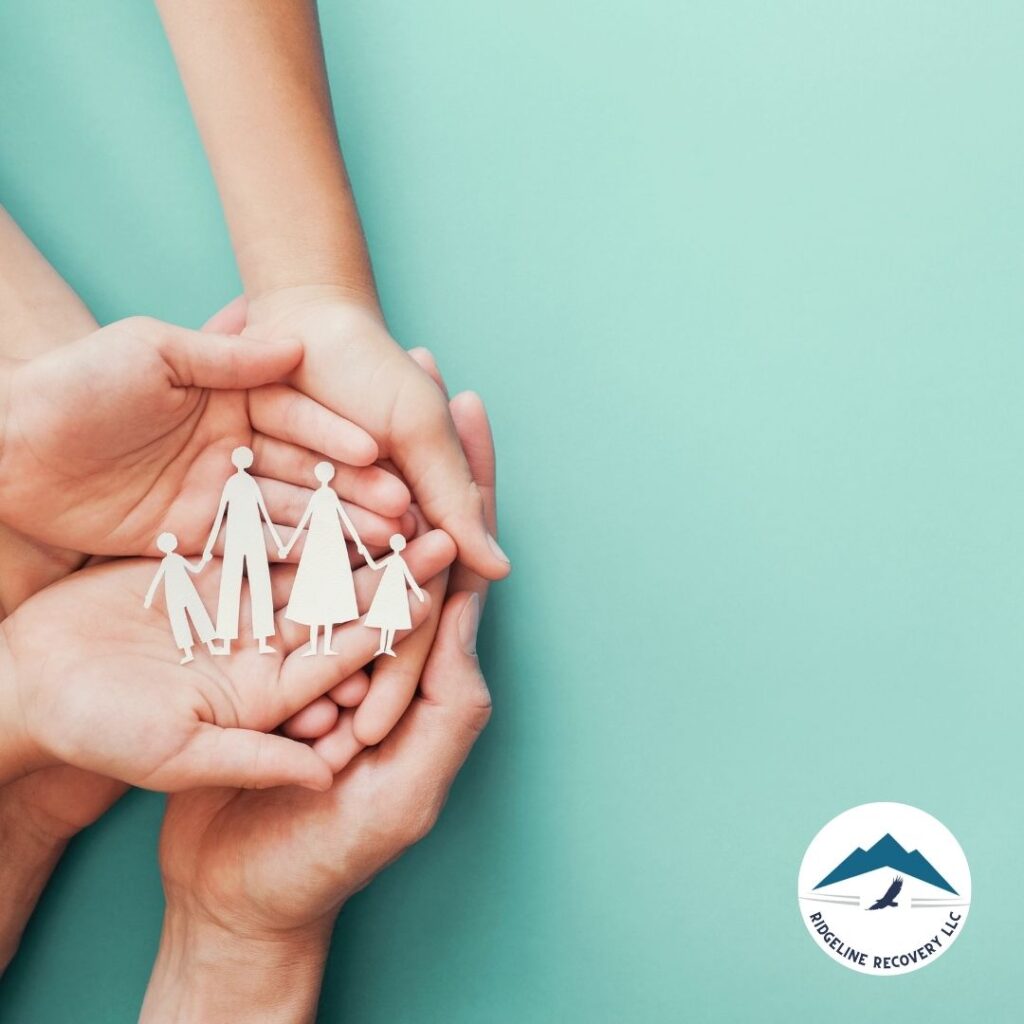Addiction Therapy Services? Let’s be real.
If you’re reading this, you’re either struggling with addiction or know someone who is. You’ve probably tried to quit. Maybe it lasted a few days, a few weeks, maybe even longer. But here you are, still battling the beast, feeling stuck. Maybe you’ve Googled things like “addiction therapy near me” or “addiction recovery near me”. And you want answers. You need solutions that actually work.
So let’s get into it. Addiction Therapy Services—what is it, why does it matter, and how is it different from everything else you’ve tried?
Why Addiction Therapy Services Are Your Lifeline
People often think addiction is a lack of willpower. That if you’re “strong enough,” you can beat it. But that’s a myth—a damaging one. Addiction isn’t about strength or weakness. It’s a brain disease that needs real treatment.
If you’re still wondering if therapy is worth it, think about this:
- How many times have you tried to quit on your own?
- What’s the cost of staying stuck in the same cycle?
If these questions hit close to home, let’s break down why Addiction Therapy Services are different.
Understanding Addiction Therapy Services
Addiction therapy services are designed to tackle both the mental and physical hold that substances have on you. It’s not just about quitting; it’s about reprogramming your mind, rewiring your habits, and building a life where sobriety isn’t a struggle. It’s achievable.
There are three main elements:
- Detoxification (Detox) – This is where you start. You can’t rebuild until the physical dependency is out of your system. Think of detox as cleaning the slate. It’s tough, but crucial.
- Therapy and Counseling – Once the physical side is dealt with, therapy digs into the “why” behind the addiction. Why do you use? What are the triggers? This is where Addiction Therapy Services do their magic.
- Aftercare and Support – Recovery doesn’t end after treatment. In fact, this is where the real work begins. Ongoing therapy, “sober living homes near me,” support groups—these keep you on track.
Types of Therapy: Finding What Works for You
Let’s get specific because therapy isn’t one-size-fits-all. Addiction therapy services can be tailored to your unique needs. Here’s a breakdown of popular methods:
1. Cognitive Behavioral Therapy (CBT)
This is a big one. CBT helps you understand the root causes of your addiction and reshape your thinking. Instead of turning to alcohol or drugs when you’re stressed or anxious, you learn healthy ways to cope. It’s about rewiring the brain to stop seeing substances as the answer.
2. Dialectical Behavior Therapy (DBT)
Similar to CBT, DBT takes things further by focusing on managing intense emotions. This is huge for people who feel overwhelmed by anger, sadness, or guilt. DBT shows you how to sit with your emotions instead of drowning them with substances.
3. Medication-Assisted Therapy (MAT)
For those dealing with severe addiction, MAT can be a game-changer. Medications like Vivitrol, a common request at vivitrol clinics near me, can reduce cravings and make relapse less likely. Vivitrol blocks the euphoric effects of alcohol and opioids, making it easier to resist.
What to Expect When Searching for Addiction Therapy Services
So you’re looking for addiction therapy near me or addiction recovery near me—what can you expect?
- Personalized Treatment Plans – No two people’s addiction is the same, so their treatment shouldn’t be either. When you walk into a therapy center like Ridgeline Recovery LLC, expect a treatment plan built specifically for your history, personality, and goals.
- Medical Detox Support – Many treatment centers offer medical support for detox. Withdrawal isn’t just unpleasant; it can be dangerous. Detox centers near me are staffed with professionals to help you safely rid your body of toxins.
- Holistic Options – Addiction treatment is more than just medical. Some people benefit from yoga, art therapy, or meditation. Holistic therapy can help you heal from the inside out, strengthening your mental resilience.
- Ongoing Support – Post-treatment care is essential. This can include sober living facilities, outpatient counseling, and group therapy sessions, like Refuge Recovery. Building a new life is easier with continuous support.
Busting Myths: What People Get Wrong About Addiction Therapy
- “Addiction Therapy is Expensive.” Yes, there’s a cost. But when you compare it to the cost of living with addiction—lost relationships, missed work, and physical toll—it’s worth every penny. Plus, most addiction treatment centers work with insurance, including options like GEHA Insurance and Medical Mutual of Ohio.
- “Only Weak People Need Therapy.” The opposite is true. Seeking therapy takes strength. Admitting you need help, showing up every day, facing your demons—that’s courage.
- “Once Treatment Ends, You’re Cured.” Addiction isn’t like a broken bone that heals and goes away. Recovery is a lifelong journey. Even after the initial treatment, therapy keeps you grounded. This is where aftercare and sober living houses near me come in.
Addiction Therapy Services in Columbus, Ohio
If you’re in Columbus and searching for addiction treatment Columbus, or addiction recovery Columbus, you’re in luck. Centers like Ridgeline Recovery LLC are ready to help.
Why Columbus? Ohio’s addiction crisis is no secret. Finding rehab near me or inpatient rehab near me shouldn’t be a struggle, and you don’t have to go far to get top-notch help.
Services Offered:
- Vivitrol Clinics – Helping you manage cravings and prevent relapse.
- Inpatient Drug Rehab – A structured environment to focus solely on recovery.
- Mental Health Services – Addiction often coexists with mental health challenges. You can get a mental health therapist near me for dual diagnosis support.
The Science Behind It: Why Addiction Therapy Services Work
Addiction is more than a choice or a “bad habit.” It’s a complex brain disease.
Here’s what happens: When you use drugs or alcohol, your brain releases a surge of dopamine, a feel-good chemical. Over time, your brain gets used to the high levels and needs more to feel the same effect. This is why stopping suddenly can lead to delirium tremens and intense cravings. Addiction Therapy Services work by helping you recalibrate your brain’s chemistry so that you can experience pleasure in normal ways again.
FAQs: Everything You Need to Know About Addiction Therapy Services
What is the first step in addiction therapy?
The first step is detox. You can’t start rebuilding until your body is clean.
How long does addiction treatment take?
It varies. Inpatient rehab typically lasts 30-90 days, but recovery is ongoing.
Can I get treatment if I also have mental health issues?
Absolutely. Many mental health clinics near me offer dual-diagnosis treatment, addressing both mental health and addiction.
What is Vivitrol, and how does it work?
Vivitrol blocks the euphoric effects of opioids and alcohol, making it easier to stay sober. Check out vivitrol clinics near me if you want to learn more.
Is addiction therapy covered by insurance?
Yes, most addiction treatment centers accept insurance. Call your provider to check if they work with Medical Mutual of Ohio or GEHA Insurance.
Why Addiction Therapy Services Go Beyond Just Sobriety
So, you might be wondering: Why not just stop using and get on with life?
Because true recovery is more than just not using—it’s about building a sustainable, fulfilling life without substances. Addiction Therapy Services go beyond just helping you quit; they’re about giving you back control over your life.
This isn’t just about saying “no” to drugs or alcohol. It’s about:
- Finding new ways to cope with stress that don’t involve substances.
- Rebuilding relationships damaged by addiction.
- Creating a new identity that isn’t centered around being a “user” or “addict.”
Let’s break down some essential tools and practices that make Addiction Therapy Services transformative.
Building a Solid Foundation: The Role of Family Therapy
Family dynamics are huge in addiction recovery. For most people, addiction doesn’t happen in isolation. It affects your family, friends, and everyone close to you.
Why Family Therapy Matters in Addiction Recovery
Addiction often creates patterns of distrust, secrecy, and resentment within families. Through Addiction Therapy Services that include family therapy, these issues can be addressed head-on. Family therapy works by:
- Healing Trust – Addiction breaks trust. Family therapy gives everyone a chance to speak openly and work toward forgiveness.
- Setting Boundaries – Families often don’t know how to deal with a loved one in recovery. Therapy can help families set healthy boundaries that support both the person in recovery and their loved ones.
- Building Accountability – Having family members who support your recovery and hold you accountable can make all the difference.
In short, family therapy can be a game-changer. If you’re searching for addiction recovery near me or mental health services near me, look for centers that offer family therapy as part of their Addiction Therapy Services.

Tools for the Journey: How Therapy Helps You Manage Cravings
One of the biggest hurdles in addiction recovery is dealing with cravings. They can hit unexpectedly and feel overwhelming, but Addiction Therapy Services offer tools to manage them.
Techniques for Managing Cravings
- Mindfulness and Meditation Cravings are often impulsive, lasting only a few minutes if you don’t act on them. Mindfulness teaches you to observe the craving without reacting, like watching a wave pass by instead of being swept away by it.
- Cognitive Restructuring This is where Cognitive Behavioral Therapy (CBT) shines. CBT teaches you to identify thought patterns that trigger cravings and replace them with healthier responses. For example, if stress is a trigger, CBT can help you replace “I need a drink” with “I need a break.”
- The “HALT” Technique HALT stands for Hungry, Angry, Lonely, and Tired—common triggers for cravings. Many addiction treatment centers use this technique to help you check in with yourself. When a craving hits, ask yourself if you’re feeling any of these things, and address it before reaching for substances.
- Medication-Assisted Therapy (MAT) For those struggling with opioid or alcohol dependence, medications like Vivitrol (available at vivitrol clinics near me) can help block the effects of substances, reducing cravings and making it easier to focus on recovery.
These tools are taught in Addiction Therapy Services to give you a fighting chance against cravings. The idea is to help you build up your resilience, making sobriety a daily choice you can sustain.
Addressing Co-Occurring Mental Health Issues: A Holistic Approach to Recovery
Mental health and addiction often go hand-in-hand. Anxiety, depression, PTSD—many people with addiction have underlying mental health conditions that fuel their use. Here’s where Addiction Therapy Services that offer dual-diagnosis treatment become essential.
Why Dual-Diagnosis Matters
Imagine trying to quit alcohol while dealing with severe depression. Without addressing the mental health side, the chances of relapse skyrocket. Dual-diagnosis treatment, available at mental health clinics near me or mental health hospitals near me, helps you tackle both addiction and mental health issues together.
Dual-diagnosis treatment is essential because:
- It reduces the risk of relapse – Treating both addiction and mental health creates a more stable foundation.
- You gain coping tools for life’s challenges – Therapy offers healthier ways to manage mental health symptoms.
- It breaks the cycle – When addiction fuels mental health issues and vice versa, addressing both is the only way to stop the cycle.
Types of Dual-Diagnosis Support
- Individual Therapy – One-on-one sessions with a therapist to address personal challenges and create a customized recovery plan.
- Medication Management – For some, antidepressants, anti-anxiety meds, or mood stabilizers can make a big difference. A mental health counselor near me or psychiatrist can guide you in safe, supportive medication management.
- Group Therapy – Meeting others facing similar challenges can help you feel less isolated and provide you with additional coping strategies.
When you’re looking up mental health therapist near me or addiction recovery Columbus, make sure the center you choose offers dual-diagnosis treatment. This will help you heal on every level.
The Long-Term Benefits of Addiction Therapy Services
Addiction recovery doesn’t end with completing a program. Addiction Therapy Services create a foundation, but the work is ongoing. Let’s talk about the long-term benefits and how sticking to therapy can transform your life.
1. Reclaiming Physical Health
Substance abuse takes a toll on the body. Through ongoing therapy, proper diet, and exercise, you can start reversing the damage. Some benefits include:
- Improved brain function – Substances often cause cognitive issues, but long-term sobriety and therapy can help your brain recover.
- Better liver and heart health – Over time, your organs can heal, especially with medical supervision.
- More energy and vitality – As you detox and rebuild, you’ll feel stronger and more energetic.
2. Improved Relationships and Social Life
Addiction isolates people. Through Addiction Therapy Services, you can work on rebuilding relationships with family, friends, and colleagues. Being able to connect genuinely without the haze of substances can be incredibly fulfilling.
3. Enhanced Emotional Stability
Therapy helps you identify triggers and manage emotions. Over time, you become better at handling stress, anger, sadness, or loneliness without resorting to substances. This emotional stability is invaluable for long-term recovery.
Building a Life You Don’t Want to Escape From
Let’s get real here. Recovery isn’t just about stopping a behavior—it’s about building a life that you’re genuinely excited to live. A life where you don’t need drugs or alcohol to cope. This is where Addiction Therapy Services come in, creating the framework for you to:
- Rediscover your passions – Many people in recovery find they’re passionate about things they never explored.
- Set meaningful goals – Therapy helps you envision a future you’re excited about.
- Embrace a new identity – When you let go of addiction, you get to choose who you want to become.
Exploring Holistic Options in Addiction Therapy
Many addiction treatment centers now include holistic therapies as part of their Addiction Therapy Services. These approaches complement traditional methods by addressing the whole person—mind, body, and spirit.
Popular Holistic Therapy Options
- Yoga and Meditation – These practices help you manage stress and stay grounded. Many people find yoga and meditation bring peace and stability, making it easier to resist cravings.
- Art and Music Therapy – Creative outlets like painting, drawing, or playing music can be therapeutic, allowing you to express emotions that are hard to put into words.
- Nature Therapy – Spending time outdoors and connecting with nature can provide relief from the stresses of recovery. Nature therapy can include hiking, gardening, or simply spending time outside.
The Benefits of Holistic Therapy
- Reduces Stress – These therapies promote relaxation, which reduces the likelihood of relapse.
- Enhances Self-Expression – Sometimes, words aren’t enough. Creative therapies allow you to release emotions you might not even realize you’re carrying.
- Increases Self-Awareness – Holistic therapies encourage mindfulness, helping you stay present and in control of your emotions.
When researching rehab near me or alcohol recovery centers near me, look for centers that offer holistic options as part of their Addiction Therapy Services. This can add an extra layer of support and healing to your journey.
Success Stories: Proof That Addiction Therapy Services Work
There’s nothing more powerful than real-life success stories to show that Addiction Therapy Services can work. Here are a few examples of how therapy has changed lives:
Story 1: From Corporate Burnout to Recovery
John was a high-performing executive who turned to alcohol to cope with stress. He finally reached out to an alcohol rehab near me after a family intervention. Through Addiction Therapy Services that included CBT and family therapy, John learned healthier ways to manage stress. Today, he’s a successful leader who doesn’t need alcohol to unwind.
Life After Treatment: Building a Future with Addiction Therapy Services
Recovery is not just about completing a program or reaching a milestone. It’s about embracing a new lifestyle where Addiction Therapy Services become part of a larger, ongoing support system. Many people don’t realize that life after treatment is just as critical to their success. So, how do you stay on track? And what resources are available to keep you moving forward?
Here’s what you need to know about maintaining long-term recovery through Addiction Therapy Services and resources that can be crucial to your success.
The Importance of a Supportive Environment in Recovery
Your environment plays a major role in your recovery. Studies consistently show that your surroundings, including where you live and the people you interact with daily, can significantly impact your chances of staying clean.
Choosing the Right Living Environment
- Sober Living Homes – One of the best resources for individuals transitioning out of treatment centers is finding sober living homes near me. These homes offer a safe, substance-free environment where you can live with others who are also in recovery. Sober living homes reinforce the routines, accountability, and support that can be hard to maintain on your own.
- Halfway Houses – Sometimes, the transition from a treatment center to independent living can feel like too big of a step. A halfway house provides a structured environment with set rules, curfews, and a community of peers who are also committed to recovery.
- Avoiding High-Risk Environments – If you’re around people or places that trigger cravings, it’s essential to make a clean break. Whether it’s a friend group or a neighborhood that’s closely associated with substance use, you’ll need a fresh start in a safe space.
Building a Supportive Social Network
- Attend Support Groups Regularly – Groups like Refuge Recovery or NA (Narcotics Anonymous) can help you connect with people who understand your challenges and are committed to staying clean. The fellowship and support from others can make a massive difference.
- Stay Away from Enablers – People who are still using substances can be detrimental to your recovery. Creating a new circle of friends, especially those you meet through Addiction Therapy Services or support groups, can help you build a positive, healthy social life.
Holistic Therapy: Beyond Traditional Addiction Therapy Services
Holistic approaches can offer an additional layer of support, especially for those who have struggled to overcome deep-rooted issues tied to their addiction.
Exploring Advanced Holistic Options
- Acupuncture and Massage Therapy – These therapies can be effective for reducing stress and relieving physical tension that builds up during recovery. Many people find they help reduce cravings and improve their overall mood.
- Nutrition Therapy – Proper nutrition is often overlooked in recovery but plays a crucial role in how you feel and function. Nutritional counseling can help restore health and balance in your body, making it easier to maintain sobriety.
- Equine and Animal-Assisted Therapy – Animal therapy can be highly therapeutic, especially for those dealing with anxiety, depression, or PTSD. Many addiction centers now offer equine therapy as part of their Addiction Therapy Services to help individuals connect, trust, and build confidence.
- Art and Writing Therapy – Creative outlets like art and writing can help people process emotions, explore trauma, and find self-expression in a new way. These therapies are especially helpful in dual-diagnosis treatment centers, where both addiction and mental health issues are addressed.
The Benefits of Holistic Therapy
Holistic therapies can improve self-awareness, provide physical and mental relief, and offer new, healthy ways to cope. When considering mental health clinics near me or mental health therapist near me, look for centers that incorporate these therapies.

Facing Unique Challenges in Recovery: How Addiction Therapy Services Help
Not all addictions are the same. People dealing with alcoholism, for example, face different challenges than those with opioid addiction. Let’s explore how Addiction Therapy Services can address these specific struggles.
Alcohol Addiction: Breaking Free from Physical and Social Dependency
Alcohol is unique in that it’s legal and socially accepted. This creates a challenge for those trying to avoid it, as they encounter alcohol in everyday life, from family gatherings to work functions.
- Dealing with Triggers in Social Settings – Learning to navigate social situations without drinking can be tough. Therapy offers strategies for saying “no” confidently, and avoiding situations where alcohol is central.
- Physical Effects and the Need for Medical Detox – Alcohol withdrawal can be severe, leading to symptoms like delirium tremens or even seizures. Addiction Therapy Services offer medical detox to safely manage these symptoms, making it possible to start recovery without risking health.
- Long-Term Support – Alcoholism often requires ongoing support. From alcohol rehab near me to local alcohol recovery centers near me, find resources that provide long-term aftercare, including therapy sessions and support groups.
Opioid and Prescription Drug Addiction: Managing Intense Physical Cravings
Opioid addiction, including dependency on painkillers, can be incredibly challenging due to the strong physical cravings.
- Medication-Assisted Treatment (MAT) – Vivitrol, Suboxone, and other medications can help reduce cravings and block the euphoric effects of opioids. If you’re looking for a vivitrol clinic near me, be sure it’s part of an integrated Addiction Therapy Services program for comprehensive support.
- Pain Management Without Drugs – Many who develop opioid addiction started with legitimate pain management needs. Therapy can help you explore alternative pain relief techniques like physical therapy, acupuncture, and meditation.
- Addressing Trauma and Pain – Many individuals with opioid addiction have underlying trauma. Dual-diagnosis programs address both the addiction and any co-occurring conditions to reduce the risk of relapse.
The Long-Term Benefits of Addiction Therapy Services: Staying on Track
Many people assume that recovery is only about quitting, but there are countless benefits that come with sobriety.
Financial Stability and Independence
Addiction is costly. From buying substances to missed work and even legal fees, the financial toll can be massive. Through Addiction Therapy Services, you not only save money but also gain the tools to rebuild financial stability.
Enhanced Emotional Resilience
Therapy teaches you how to handle emotions in a way that doesn’t involve substances. You’ll develop the skills to manage stress, anxiety, anger, and other strong emotions without reaching for a drug or a drink.
Physical Health and Vitality
Addiction takes a heavy toll on the body, leading to conditions like alcoholic dementia, liver disease, and heart problems. When you engage in Addiction Therapy Services, you start reversing some of the damage and regain physical health, energy, and focus.
Frequently Asked Questions (FAQs) about Addiction Therapy Services
What makes Addiction Therapy Services different from traditional counseling?
While traditional counseling may address surface-level issues, Addiction Therapy Services dive into both the physical and psychological aspects of addiction. They offer medical support, behavioral therapy, and personalized treatment plans specific to addiction.
Can Addiction Therapy Services help with co-occurring mental health conditions?
Yes, many addiction therapy centers provide dual-diagnosis treatment. This means they offer specialized support for both addiction and mental health conditions like anxiety, depression, or PTSD.
What if I relapse after treatment?
Relapse isn’t the end of your journey. Many people go through multiple rounds of treatment. The key is to continue with Addiction Therapy Services that offer ongoing support, whether through outpatient programs, group therapy, or check-ins with a counselor.
How does family therapy fit into Addiction Therapy Services?
Family therapy can be a significant part of recovery, helping repair damaged relationships and providing your loved ones with tools to support you. Many addiction treatment centers include family therapy in their programs.
How do I find a reputable addiction treatment center near me?
Look for centers with strong reviews, credentialed staff, and a variety of Addiction Therapy Services that match your needs. Many reputable facilities also accept insurance plans like Medical Mutual of Ohio and GEHA Insurance.
Staying Engaged with Your Recovery Journey
Even after you leave a treatment center, recovery is an ongoing process that requires commitment, support, and daily effort. Here’s how Addiction Therapy Services help keep you on track.
Routine Check-ins and Therapy Sessions
Regular therapy sessions—whether weekly or monthly—provide accountability and ongoing support. During these sessions, you can discuss any challenges or changes in your life, adjusting your recovery plan as needed.
Setting Personal Goals
Sobriety opens up a new world of possibilities. By setting personal goals—whether related to career, relationships, or health—you give yourself a reason to stay on track and something positive to focus on.
Staying Connected to the Recovery Community
Recovery groups are more than just meetings; they’re a lifeline. Many people find their strongest support systems through these groups, and they continue attending meetings years after getting clean.
Engaging in Healthy Hobbies
Many people in recovery discover new passions, like fitness, hiking, cooking, or art. Having hobbies not only fills your time with positive activities but also gives you a constructive outlet for stress and emotions.
The Path Forward: Making the Choice
If you’ve read this far, you know this isn’t easy. There’s no magic pill, no shortcut. But with Addiction Therapy Services, you have a path forward. Therapy gives you the tools to rebuild your life.
Here’s the reality:
- You’ll have to put in the work.
- There will be days when you’ll want to give up.
- But every time you resist a craving, every time you go to a support group, you’re reclaiming a little more of yourself.
The choice is yours. Stay stuck or choose freedom. Recovery isn’t a straight line—it’s a journey, and Ridgeline Recovery LLC is here to walk it with you.
So, what’s it going to be?
Call Us Now!
If you or a loved one is struggling with heroin or alcohol dependency, reach out to Ridgeline Recovery Center in Columbus, Ohio, today. At Ridgeline Recovery, we offer a path to hope and healing. Our comprehensive Addiction Recovery services include Addiction Therapy, Addiction Treatment, Vivitrol Clinic and specialized Mental Health Services designed to support your journey to recovery.
We provide Aftercare Programs and Peer Support to ensure you have ongoing assistance after treatment. Our dedicated team offers Case Management and Child Services for those needing extra support. For individuals who prefer a faith-based approach, we offer Faith-Based Recovery options.
Our programs feature Group and Individual Counseling, along with Medication-Assisted Treatment (MAT) to address your unique needs. We also have an Intensive Outpatient Program (IOP) and a Partial Hospitalization Program (PHP) for more structured care.
Our team includes Registered Nurse Services, Psychiatric Services, and Therapeutic Behavioral Services (TBS) to provide comprehensive support throughout your recovery process. We work with various Insurance Coverage plans to help you access the care you need.
Don’t wait—contact us now to start your journey toward a brighter future with Ridgeline Recovery.
For more stories and information Contact Us, visit our Blog page and Stories & Highlights.







